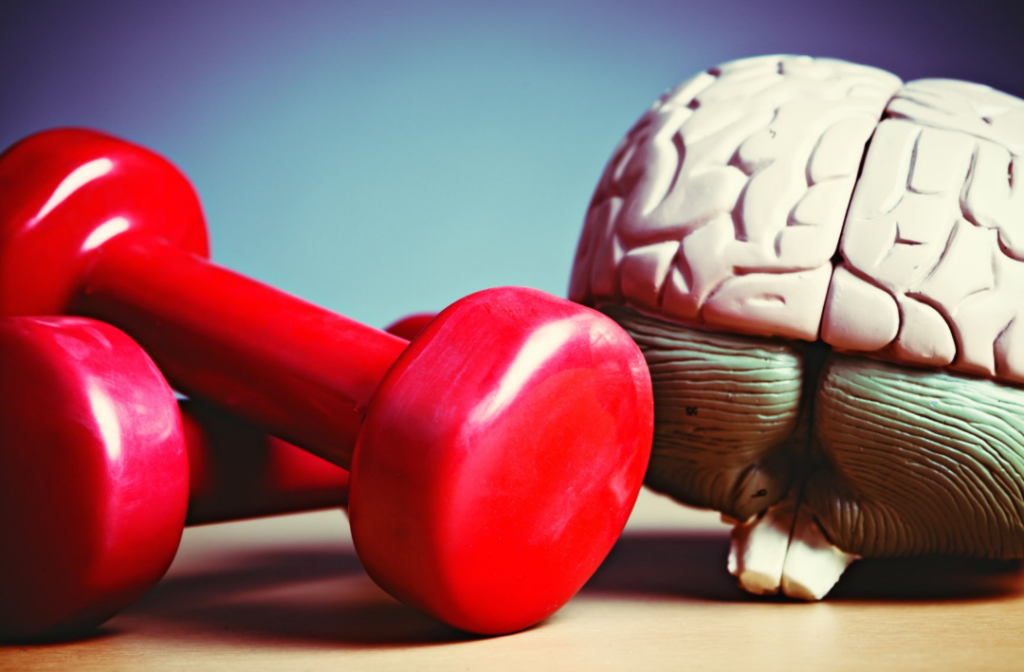Exercise is important. This is something that most of us probably already know. Why is it important though? Exercise is usually known for the physical health benefits. Exercising regularly has been shown to reduce the risk of disease, increase muscle and bone strength, and increase natural energy levels. While the physical health benefits are impressive, the benefits for mental health are just as real. Before we delve into those benefits, we should define exercise.
What is Exercise?
Exercise is defined as any movement that makes the muscles work and requires the body to burn calories. Exercise is simply moving the body. This simple definition provides near limitless possibilities of forms of exercise. There are recommendations, for example, the American College of Sports Medicine recommends, “adults should accumulate at least 30 minutes of moderate-intensity aerobic activity five days per week OR engage in 20 minutes of vigorous activity three days per week.” The simple rule however is that any exercise is better than no exercise.
Movement and Mental Health
How does moving more translate to better mental health? Exercise has been proven to decrease the symptoms of both depression and anxiety. Physical activity kicks up endorphin levels, the “feel good” chemical in the brain, and this creates happiness and euphoria. Studies have shown that moderate exercise throughout the week is enough to significantly affect depression and anxiety. Along with lessening symptoms of depression and anxiety, exercise helps keep stress levels low. Increasing the heart rate can reverse stress-induced damages in the brain, improving cognition and mood.

Feel Better, Think Better
Feeling happier and less stressed is always a good thing, but exercise can lead to improvements in thinking also. Stressful events cloud and distort our brain’s ability to think as sharply, but regular exercise has shown to decrease that “brain fog” significantly. We are also able to think more clearly due to better sleep quality, another benefit exercise can bring. Exercising regularly results in an increase in sleep quality for adults by reducing the time it takes to fall asleep and decreasing the amount of time they lie awake in bed during the night. In addition to clearer thinking, the overall functioning of the brain sees improvement from exercise. From building intelligence to strengthening memory, exercise boosts brainpower in several ways. Studies on mice and humans indicate that cardiovascular exercise creates new brain cells and improve overall brain performance. It also prevents cognitive decline and memory loss by strengthening the hippocampus, the part of the brain responsible for memory and learning. Studies also prove that physical activity boosts creativity and mental energy.
Be the Best You
With all the benefits of exercise, there is still a lack of treatment involving exercise. This is largely due to the difficulty seen from translating the “awareness” of exercise benefits into action. Exercise has become more of a trend lately, with the physical benefits being touted from celebrities and athletes to social media influencers, typically showcasing extremes. It doesn’t take any “extreme” form of exercise to obtain the benefits and start feeling better. Finding what form of exercise works best for you and your schedule is the key. The beauty of exercise as treatment is its simplicity, and the time it takes to feel the effects. With as little as 10 to 15 minutes of moderate exercise, the positive effects can be felt. This only increases with time and consistency. Don’t just take our word for it, start to implement regular exercise in as a part of your schedule and feel the difference. Try it out and see what you think and more importantly… how you think!
Sources:
Elizabeth Michaelson Monaghan. (2021, April 14). Exercise & Mental Health: How moving can be better than drugs. Psycom.net – Mental Health Treatment Resource Since 1996. Retrieved October 20, 2021, from https://www.psycom.net/exercise-benefits-mental-health.
Mayo Foundation for Medical Education and Research. (2017, September 27). Depression and anxiety: Exercise eases symptoms. Mayo Clinic. Retrieved October 20, 2021, from https://www.mayoclinic.org/diseases-conditions/depression/in-depth/depression-and-exercise/art-20046495.
Semeco, A. (2021, June 18). The top 10 benefits of regular exercise. Healthline. Retrieved October 20, 2021, from https://www.healthline.com/nutrition/10-benefits-of-exercise#TOC_TITLE_HDR_11.
Sharma, A., Madaan, V., & Petty, F. D. (2006). Exercise for mental health. Primary care companion to the Journal of clinical psychiatry. Retrieved October 20, 2021, from https://www.ncbi.nlm.nih.gov/pmc/articles/PMC1470658/.
Walden University. (2021, March 25). Five-mental-benefits-of-exercise. Walden University. Retrieved October 20, 2021, from https://www.waldenu.edu/online-bachelors-programs/bs-in-psychology/resource/five-mental-benefits-of-exercise.




Comments are closed.